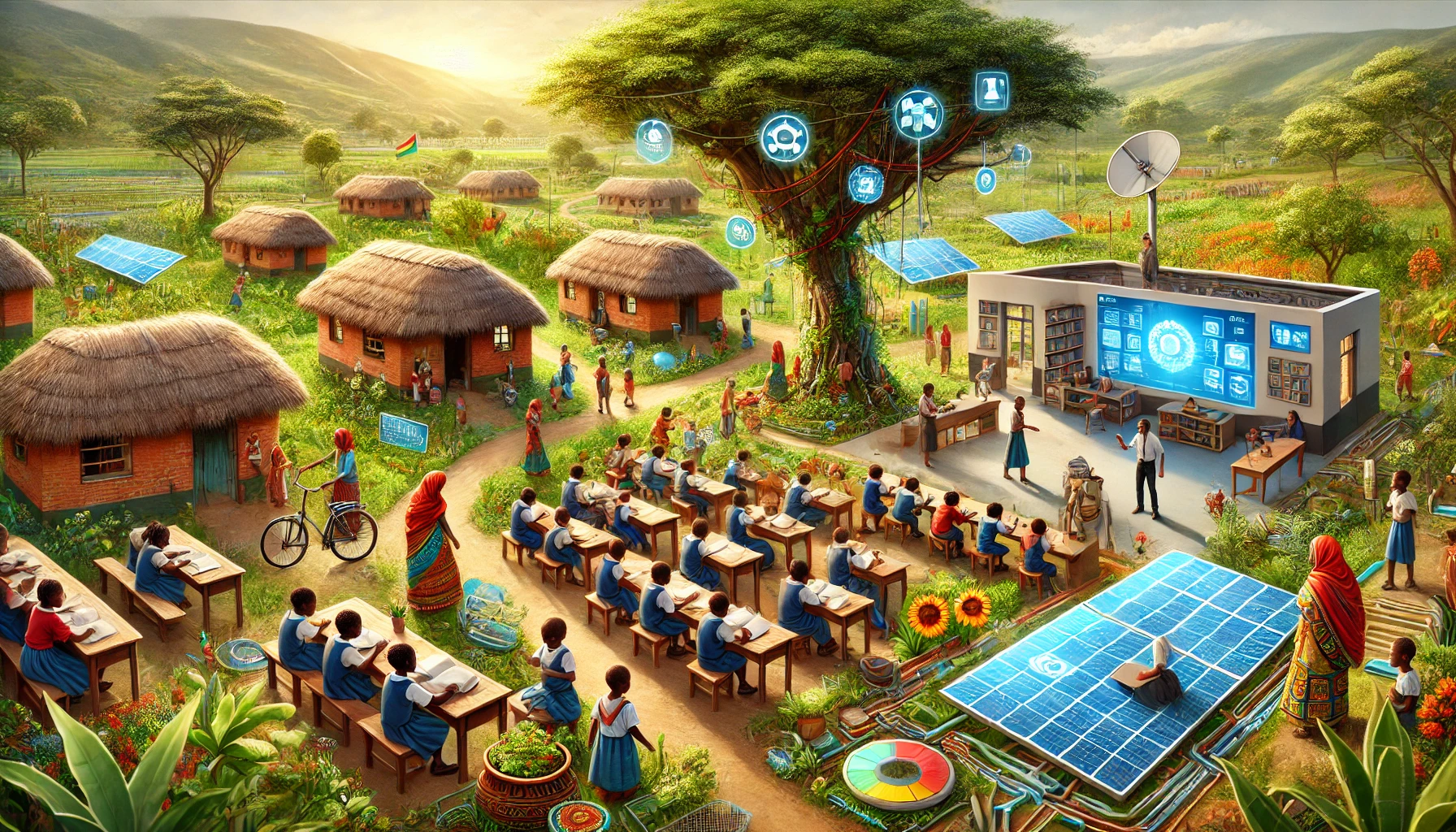Invest in Rural Areas to Combat Poverty, Hunger, and Inequality, IFAD President Urges World Leaders at Davos
“Forced migration, food price inflation, and accelerating climate change are warning signs of a fragmented world threatening stability and food security,” Lario stated.

As the global community confronts the intertwined challenges of climate change, economic instability, and conflicts, Alvaro Lario, President of the International Fund for Agricultural Development (IFAD), is calling on leaders to prioritize investments in rural areas. Speaking ahead of the World Economic Forum in Davos, Lario emphasized that the 3 billion people living in rural regions—where poverty and hunger are most acute—hold the key to addressing global challenges.
Rural Investments: A Pathway to Global Stability
“Forced migration, food price inflation, and accelerating climate change are warning signs of a fragmented world threatening stability and food security,” Lario stated. “Investments in rural areas can create decent jobs for young people, stabilize food systems, and help small-scale producers adapt to climate change. Leaders at Davos—governments, private investors, and innovators—must step up to foster shared prosperity that benefits everyone.”
Agriculture-driven economic growth is two to three times more effective in reducing poverty than growth in other sectors. The rising global demand for diversified and nutritious foods presents significant opportunities for small-scale farmers and rural businesses, particularly in developing countries.
Yet, rural development remains underfunded. Official Development Assistance (ODA) to agriculture has stagnated at 4-6% of total ODA, falling far short of the growing need, particularly as climate change exacerbates challenges. Small-scale farmers, who produce one-third of the world’s food, receive only $5 billion annually in climate finance, a mere 1% of global climate funding. Their estimated needs stand at $75 billion per year.
IFAD's Strategic Vision for Rural Growth
IFAD is forging partnerships to reimagine rural growth by mobilizing governments, businesses, and innovators. It became the first UN specialized agency, outside of the World Bank, to receive a credit rating and issue sustainable bonds. This initiative has raised more than $720 million from global investors like pension funds and insurers to benefit the world’s poorest populations.
IFAD is also championing digital solutions to empower rural communities. Its Moonshots for Development initiative supports innovations such as a Kenyan start-up using artificial intelligence (AI) to detect crop infestations and offer tailored advice to farmers. Additionally, the agency is exploring how tools like e-wallets, drones, and blockchain can benefit small-scale farmers.
The Global Reality of Rural Poverty
An estimated 700 million people live in extreme poverty, earning less than $2.15 per day, with three-quarters of these individuals residing in rural areas. Food inflation is a critical issue for developing nations, where 735 million people suffer from hunger, and 3 billion cannot afford a healthy diet.
Moreover, 1.7 billion people—20% of the global population—live in high-inequality economies. Rural development has been proven to drive transformative change. Between 2019 and 2021, IFAD’s initiatives improved the incomes of 77 million people and enhanced food security for 57 million more.
A Call for Collective Action at Davos
Lario stressed that addressing global challenges requires collaboration. “No one can solve these issues alone. We must leverage emergent technologies and innovations to ensure they are accessible to the world’s poorest,” he said. “Failure to do so risks global development and increases the potential for hunger and conflict everywhere.”
A New Era for Rural Development
IFAD’s initiatives underscore the importance of rural investment for global stability. By aligning public and private sector efforts and deploying cutting-edge technologies, IFAD aims to not only alleviate poverty but also create resilient rural economies.
As Lario and other leaders gather at Davos, the message is clear: investing in rural areas is not just a moral imperative—it is essential for building a more equitable, stable, and sustainable future for all.










